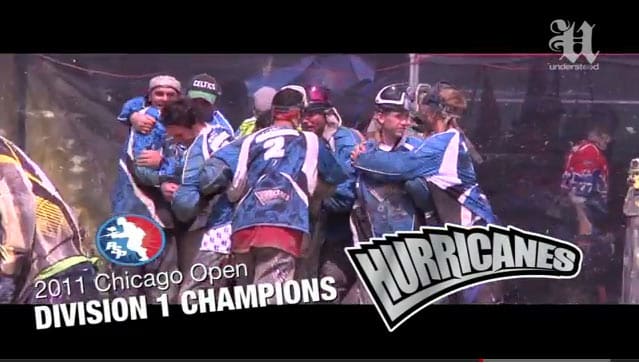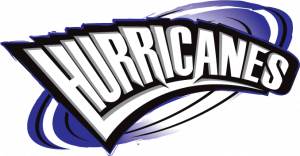Following on the heels of Tuesdays announcement that the New England Hurricanes were withdrawing from pro paintball we received an interesting request.
An anonymous reader known to ProPaintball.com only as the “Information Merchant” dropped us an email with a request to publish an interview he was conducting with Jeff Stein, owner of the NE Hurricanes.
From the looks of it, the Information Merchant put Jeff through the wringer. The interview that follows is hard hitting and provides a great opportunity for the community to view the thought process behind the decision.
Information Merchant: I would like to thank Jeff Stein for allowing me to interview him about the New England Hurricanes’ leaving professional paintball.
I would also like to thank Jeff for putting up with my questions, as I tried to go more to the heart of the matter and provide less of a fluff-job, promo op than a lot of interviews I’ve read in paintball.
As background, the Hurricanes are discontinuing their pro team, but this is not the end for either the brand or Jeff himself.
IM: The Hurricanes were not a good team last year. In fact, they were one of the bottom ranked pro teams in the PSP. Is that why you are discontinuing it?
Jeff: No. We transitioned from a top four 7-man team in 2008 to a pro PSP team in 2009. During the course of that transition we changed coaches, lost 5 players and our practice team (NEX), switched home fields (twice), fostered a new relationship with a new practice team (187).
It wasn’t as simple as buying a new bunker set and moving on.
We had a disappointing year, but I believe that had we stayed pro we would have done very well next year. Unfortunately, it just wasn’t in the cards.
IM: You said you weren’t able to get enough sponsorship to be competitive. Was that because of your lack of performance ? How much of this change was your decision, as opposed to something foisted on you?
Jeff: I believe the loss of sponsorship was caused more by economic factors than performance issues, but certainly performance didn’t work in our favor.
The loss of sponsorship was a catalyst that brought me to my final decision, but the final decision was based on many factors, and short-term finances were only one. The lack of sponsorship was a symptom, not the disease.
If you keep doing what you’re doing, you’ll keep getting what you’re getting. What we were doing wasn’t getting us what we needed to compete. Something needed to change and it went deeper than just winning matches.
IM: Is there a future in professional paintball?
Jeff: Define future. Professional paintball will always be around, if only as a construct of the leagues that cater to that division. There will always be people who want to compete at the top level, call it pro or open or whatever you want.
Certain types need to seek out elite competition to test themselves. Call that professional paintball. It may cater to a dwindling few, and fewer people outside of that community of “pros” may care, but that’s what it is.
But if “future” is defined by larger crowds, larger dollars… if “future” implies a transmission to better and greater, then I don’t know. I can’t see that far in advance.
IM: So, you say that you need to change at a more fundamental level and you talk about the “pro model circa 2004” versus the “new pro team model.” What does that actually mean?
Jeff: In 2004, all a pro team had to do was perform on the field. That was it. If you did well, the infrastructure of paintball took care of the rest. Win an event and you’d be on the covers of PGi, PSI, P8nt, Facefull and PB2X.
There was an entire legion of paintball media set up to advertise how great you were. The paintball industry, perhaps incorrectly, assigned a high value to that exposure and, consequently, to pro teams.
And, resultingly, teams were flush with money. And, again, the only thing they had to do was play! It was so easy and we didn’t even know it! Who took 3rd place in pro at Chicago this year? You have to think about it, right?
Back in 2004, it was common knowledge amongst the “tournament aware”. That model no longer works. There is no print paintball media left to speak of, and the impact of the online media is unproven.
Paintball industry no longer values teams just for their on-field value. Teams need to drive value through active marketing.
They need to do more than go on the field and win. In fact, going on the field and winning is one of the least important parts of building a sustainable model. If you want examples of who is driving the “new” model of pro teams, look at Explicit and Vicious.
Even with active marketing efforts, the cash value of sponsorship has gone down so much that most teams need an alternative source of funding – a store or field or tournament series or whatever.
Teams need to be self-sustaining. And in many cases, the players themselves are contributing to the bottom line.
And when I talk about changing things at a fundamental level, I mean going beyond changing players or even changing formats. I mean changing the entire approach of the organization.
IM: Some people (including yourself) have talked about the need to thin the herd at the pro level. What do you say to people who see the end of the Hurricanes as just that – the weakest sheep in the flock being devoured by the wolves?
Jeff: I would understand that reasoning. Personally, I don’t think the Pro division is better off without us. But I’m biased.
IM: Why is the pro division not better without the Hurricanes? Isn’t dropping the weakest teams another way to strengthen the whole?
Jeff: Ouch. It would make a great discussion. Maybe I’ll make that a “thread of the week” in the NEH PbNation forum. It would depend on how you define the weakest. Financially? On field? Is a team’s impact on the sport limited to what trophies it takes home?
IM: Obviously, we are going to see other teams fold. Who would you guess is in trouble?
Jeff: Clearly not for me to say who is in trouble. But, I would look for teams that do not have deep pockets behind them. Any team that is entirely reliant on industry support is in the danger zone.
IM: Who failed? Is this your failure? The team’s failure? Paintball’s failure?
Jeff: Interesting question. Personally, I don’t see this as a failure, per se. It is evolution. But if you want to peg this on anyone, peg it on me. Certainly it isn’t the team’s failure. Ensuring our stability was never their job.
IM: How are the Hurricane players taking this?
Jeff: They are dismayed. Some were surprised, some weren’t. This team was a big part of everyone’s lives. I am sorry that the team didn’t continue for them. I would have liked for the players to have had the opportunity to prove that last year was a fluke.
Special thanks to Information Merchant and Jeff Stein for allowing us to publish this interview.
Keep Reading: Paintball Leagues

